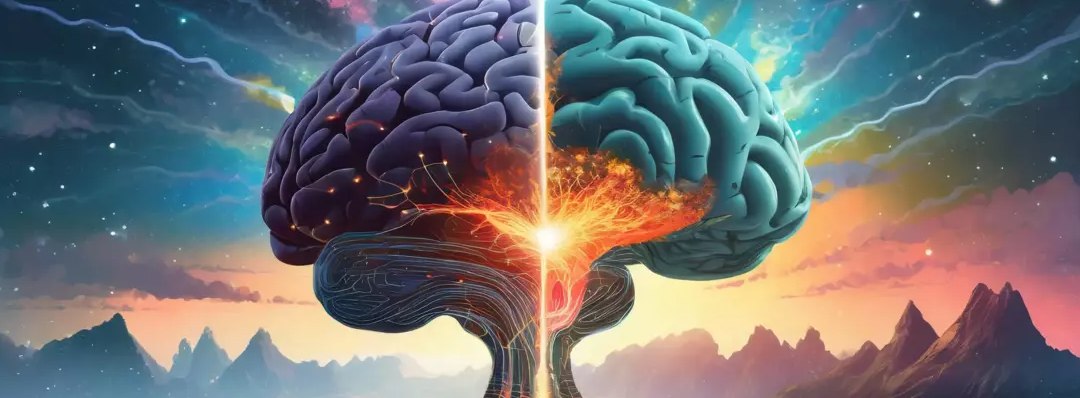
The idea of the brain being split into right and left hemispheres that do radically different things has entered the popular imagination. Following an article exchange on the IAI, Scott Barry Kaufman and Iain McGilchrist finally meet to investigate the remaining untouched ground in this mind-melding debate

Dr. Iain McGilchrist is a psychiatrist, neuroscience researcher, philosopher, and literary scholar. He is a Quondam Fellow of All Souls College, Oxford, an associate fellow of Green Templeton College, Oxford, a fellow of the Royal College of Psychiatrists, and former consultant psychiatrist and clinical director at the Bethlem Royal & Maudsley Hospital, London. He has been a research fellow in neuroimaging at Johns Hopkins Hospital, Baltimore and a fellow of the Institute of Advanced Studies in Stellenbosch. He has published on topics in literature, philosophy, medicine, and psychiatry. A citizen of Scotland, he is the author of a number of books, but is best-known for The Master and his Emissary: The Divided Brain and the Making of the Western World and The Matter with Things: Our Brains, Our Delusions, and the Unmaking of the World. LCWR communications director Annmarie Sanders, IHM interviewed Dr. McGilchrist on the need to perceive and love the world with an expansive vision and on the role of wonder and awe in the spiritual life.

Abstract: What might have led to the fundamental changes in the built environment during the 20th century? While factors such as postwar reconstruction, urbanization, industrialization, shifts in style, or socio-political changes are surely involved, there may be deeper influences that are associated with the structure and dynamics of the human brain. Iain McGilchrist’s hemisphere hypothesis proposes that the differences between the left and right hemispheres are not functional but embody opposing approaches to the world: the left sees an atomized world made of things to be controlled and manipulated for survival; the right sees an interconnected world of wholes with which it is deeply related. McGilchrist observes that in recent centuries, there has been an increasing shift in the West towards the left hemisphere’s approach. Christopher Alexander’s lifelong quest for wholeness in the built world resonates with McGilchrist’s observations as applied to the field of architecture. Alexander observed that today’s built environment is an expression of our civilization seeing the world as a giant mechanism made of parts rather than an indivisible whole. In response, Alexander developed design methods that approach the world as a unified whole and the building of new places as a further unfolding of that whole.

Feynman’s Birds: Richard Feynman is notorious for his witty quotes, including that “philosophy of science is about as useful to scientists as ornithology is to birds.” Indeed, some neuroscientists would look perplexed in front of analytic accounts of their own practices, methods, and foundations. Starlings fly by flapping their feathered wings and yet, regardless of their individual skills and collective choreographies, they may be ignorant about how and why they do it.

I begin with this quotation from the Introduction to The Matter with Things. In recent years I rejoined the Scientific and Medical Network in search of contemporary thinkers, outside the Anthroposophical Society, who appear to be awakening to the spiritual in the human being and the cosmos. They may consciously or unconsciously be representatives of the Spirit of our time – Michael. One such individual, I think, is Iain McGilchrist whose writings and interviews I have explored and would like to introduce in this article.

Es psiquiatra, filósofo y neurocientífico, dedicó toda su vida al estudio de la relación mente-cuerpo, se formó en medicina y en sus libros intenta explicar cómo los humanos podemos vivir y comprender el mundo real reuniendo la filosofía, la física y la neurociencia para crear una visión única de nuestra realidad; demoliendo el mito de la teoría de los hemisferios cerebrales y encontrando una singular interpretación para ciertas formas de entender el universo.






